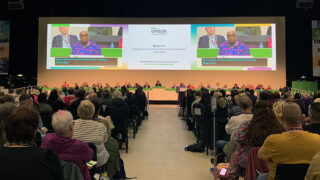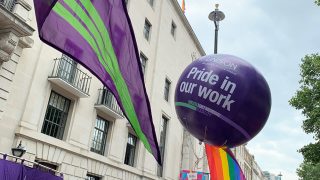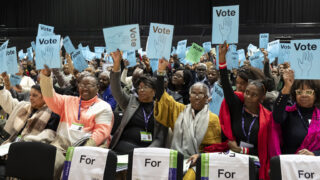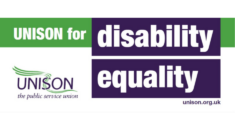The final session of UNISON’s 2013 local government conference in Liverpool this afternoon saw delegates debate a number of motions around equalities issues and the politics of austerity.
For the union’s LGBT group, Deirdre Costigan proposed a motion that was “primarily about supporting our transgender members’ rights”.
She cited a number of examples of the bullying of transgender members, including instances of being asked what toilet they use.
And she reminded delegates of what happened to Lancashire teacher Lucy Meadows, who killed herself after being ‘monstered’ by the tabloids simply for being a trans woman.
Emma Proctor of Derbyshire said that UNISON was “very supportive”, but said that much of the negative behaviour was “behind your back”, and she asked members to go back to their branches and face the problem.
For the executive, Caroline Thompson, said that the cuts are impacting negatively on services for LGBT people and noted that “cuts to LGBT services are not the answer to getting our economy going again.”
“We are all good workers, providing excellent services for our members and the public,” added another delegate.
“Think about what you do and what you say and show respect to our transgender members”.
Proposing a motion on the Black experience of the financial crisis and the continuing recession, Bev Miller for the national Black members’ committee told conference that Black members are being disproportionately hit by the cuts and job losses.
“‘Unity is strength’ cannot be empty rhetoric,” she said. Margaret Greer of Hammersmith and Fulham said that “the chancellor’s plans means that Black communities will continue to suffer.”
The union, using Freedom of Information, has gained evidence of the extent to which Black workers are being affected by this “racial bias”.
Challenging discrimination and fighting for equality must continue to be central to our union, she added.
For the executive, David Hughes said that Black members had the same worries as any other public service worker – but with the addition of the impact of racism.
But he noted that, while all Black workers are disproportionately affected, “Black women workers are even more disproportionately affected.”
In a further motion, Michael Cudlip from the national youth and community workers committee stressed that “youth services have been decimated and, in some cases, destroyed by the cuts”.
He also pointed out that the government’s six-week National Citizen Service will cost more than a year-round youth service, and will benefit private company Serco.
Heidi Compton from Bolton said that the constant attacks on youth services are having a detrimental effect – not just on this generation, but on the next.
She added that she would love to start a family – but wouldn’t do so at present, because there was no hope for young people.
And Clare Harwood from the Northern region told how, at home in Sunderland, a 17-year-old girl who had been in care asked if she could clean Ms Harwood’s house – just for a cup of tea, because she was lacking support while she was studying.











